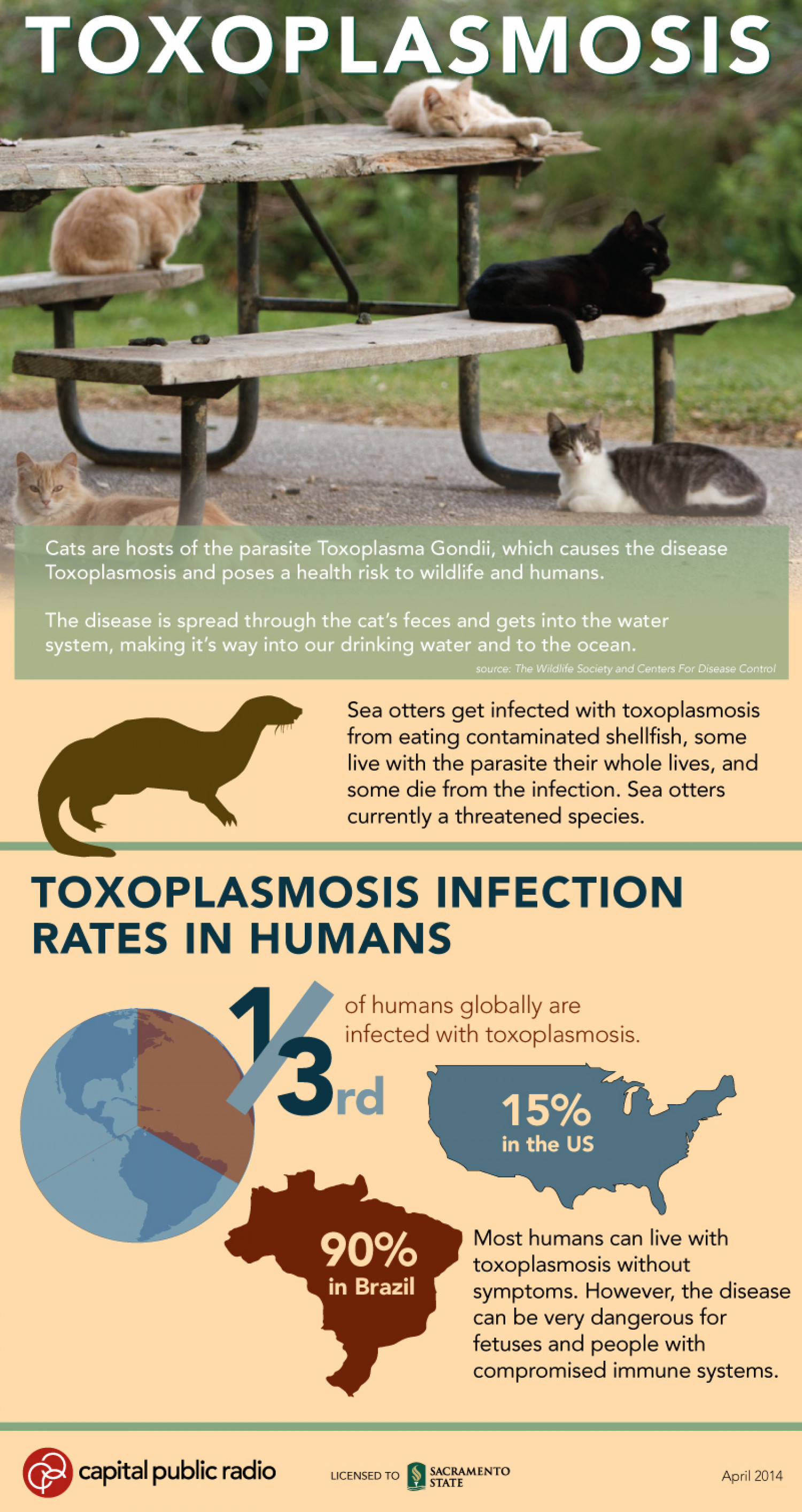Today, we will tell you a story that, believe it or not, is based on real-life cases around the world.
We consider ourselves as a smart, important and autonomous species; so, it would be ridiculous to believe that some nonhuman entity could control our brain and force us to behave like a new kind of zombies.
All warm-blooded animals, including humans, can be subjected to an abductor who can potentially make us all sick with an infection. The name of this kidnapper is a parasite known as T. Gondii, who is responsible for a disease called Toxoplasmosis.
This unwelcome visitor is better off in hosts of the felid family, your beloved cat.
What is wrong about it?
To begin with, cats eat mice.
What if your cat eats an infected mouse, and then it comes back home, where you obviously dwell?
We are not trying to demonize cats. We may either love them or dislike them, but the most important thing now is not our feelings towards them. What really matters is the fact that having pets implies responsibility; we must give them all the care they need. If not, the best choice at hand is to do without them. From a sanitary perspective, neglecting pets is the worst thing that could ever happen.
There are several studies confirming that T. gondii is capable of causing behavioral changes in infected animals. This microorganism makes mice drawn to cats’ urine scent rather than fearful, which means that mice do not avoid the places where cats prowl around. It is crystal clear where this line of thinking leads us to: an infected mouse´s odds of becoming cat food are already high.

Obviously, this cycle is just right for the parasite. Infecting an animal that is directly in a cat's food chain, guarantees the transition from a temporary host to a permanent one. It is better to have a house of its own than a rented one.
In the case of humans, how would this Toxoplasma gondii affect our behavior?
Most people infected with Toxoplasma gondii show no relevant change in behavior. However, in a group of infected individuals, T. gondii causes an array of behavioral manifestations. For example, in men there is an increase in mistrust, jealousy, and dogmatic behaviors. In women, on the contrary, there is an increase in kindness, extraversion, persistence and correct moral conduct. So, when we talk about T. gondii’s effect on humans, the sex of the host has everything to do with it.
T. Gondii could also have something to do with the development of some mental disorders. This parasite has been associated with the incidence of schizophrenia, obsessive-compulsive disorder, and suicidal behaviors.
A possible mechanism that explains the variability between the behaviors of sexes, can be found in how this parasite affects the testosterone levels.
Testosterone is a sex hormone that is mainly secreted in the testes. It is also produced in the ovaries, but in smaller amounts. In this sense, testosterone is the main male sex hormone. In fact, men produce 20 times more testosterone than women daily.
Professor Javier Borráz-León, is a researcher at the University of Turku in Finland and in the National Autonomous University of Mexico. He headed a recent study about the relationship between the infection with T. gondii and the testosterone levels.
The study sample, composed of 213 apparently healthy adults, was divided into two subgroups: one of 108 men and another of 105 women. All the participants underwent blood tests to check the presence of the parasite and also their testosterone levels. Both groups also completed a questionnaire that explored the presence of psychopathological symptoms.
The results, published in the journal Adaptive Human Behavior and Physiology, were shocking. 35 participants or the 16.4% of men were positive for toxoplasmosis.
Regarding sex, 22 men (20%) and 13 women (12.4%) were positive.
The infected participants did not know they were sick, as they were asymptomatic. This is often the case; it is estimated that 30% of the world's population unknowingly carries a Toxoplasma infection.
Infected men showed higher levels of testosterone compared to the uninfected men.
The increased levels of testosterone were also associated to a higher sensitivity to rejection and more psychotic symptoms or paranoid ideas and delusions.
In the case of women, no differences were observed in the level of testosterone between infected and healthy participants.
Taking into consideration that, for years, testosterone levels has been associated with the appearance of various mental disorders, the importance of these results cannot be discarded.
Therefore, the study establishes a direct link between the infection with T. gondii, the increase in testosterone levels and the existence of psychotic symptoms like those present in diseases such as Schizophrenia and Bipolar Disorder.
Additionally, the study offers empirical evidence for what many consider the myth of free will.
Do we really decide how to behave or do we occasionally end up being executors rather than decision makers?
At least in men infected with T. gondii, the increase in testosterone would place them in a position of greater vulnerability to experience low self-esteem and perhaps aggressiveness.
Finally, when it comes to behavior, the results of this study also teach us a lesson. There is a whole lot of factors intervening and influencing on our way of thinking, feeling and acting. Sometimes these factors are so obvious that can be seen with the naked eye, for instance, a trauma caused by a car accident, by any type of abuse or by the passing of a loved one.
However, sometimes we cannot explain why people act one way or another, for the answers cannot be found so easily. There are behaviors that cannot be explained by what seems evident or what can be perceived by the senses.
I wish you a great week!